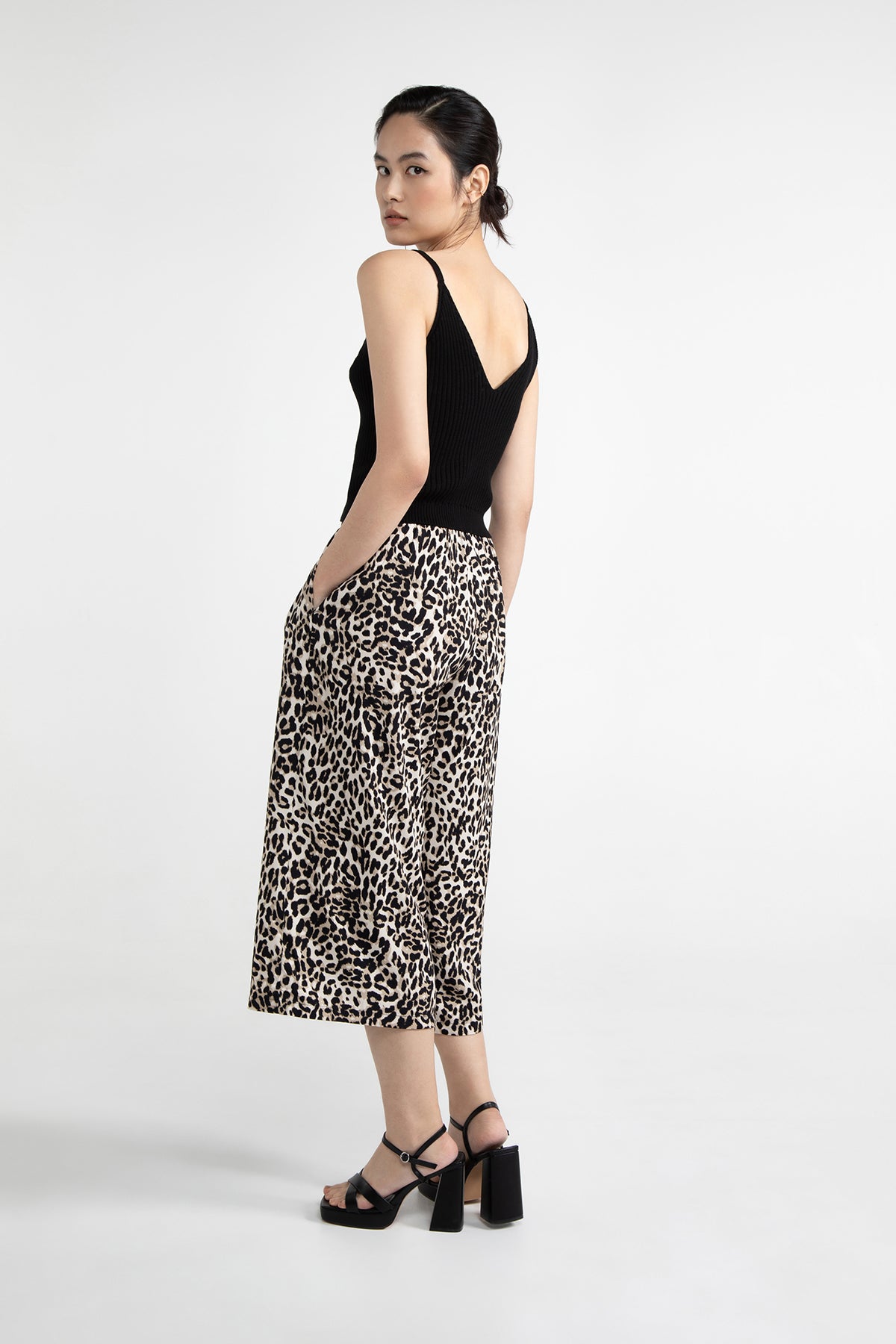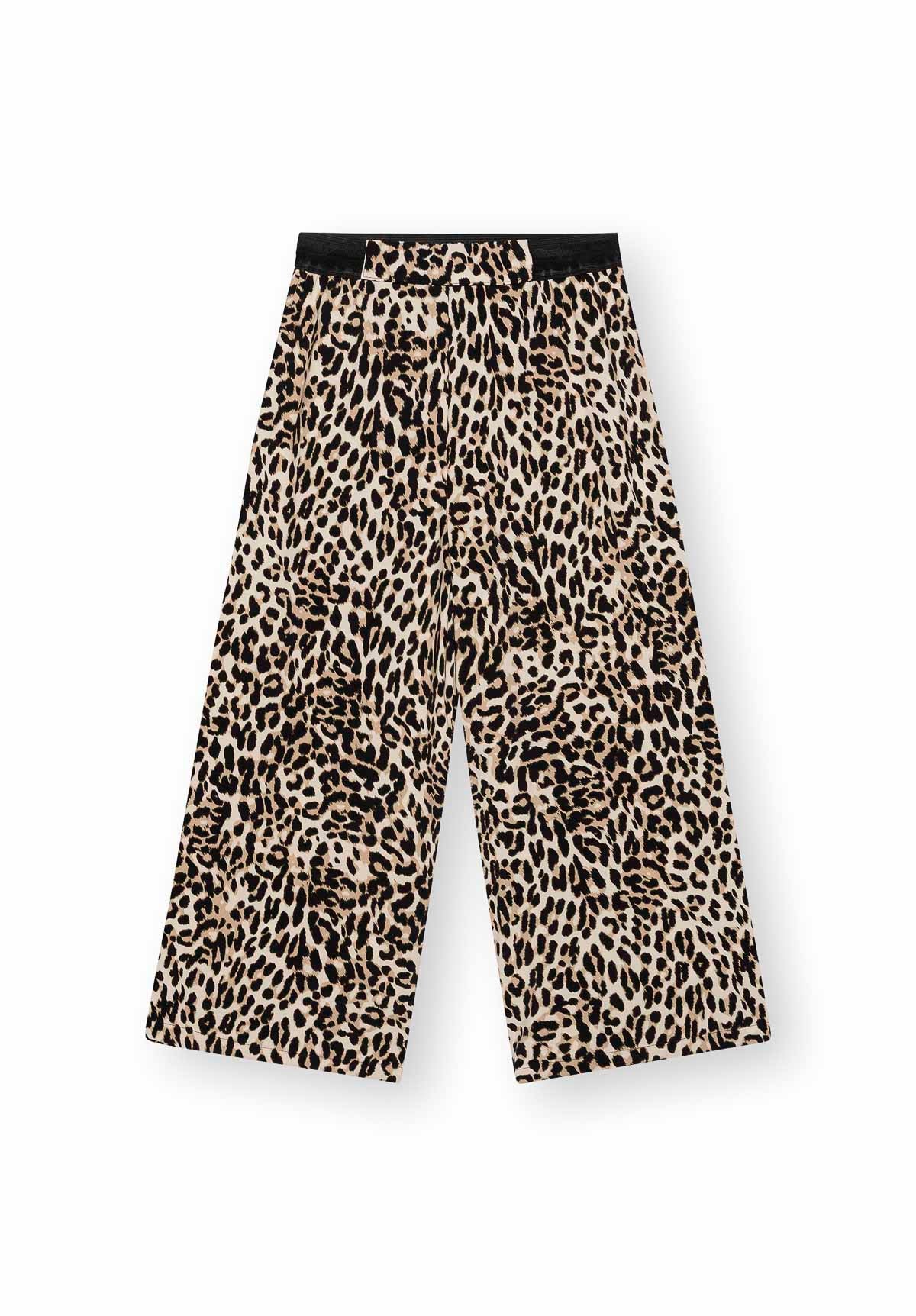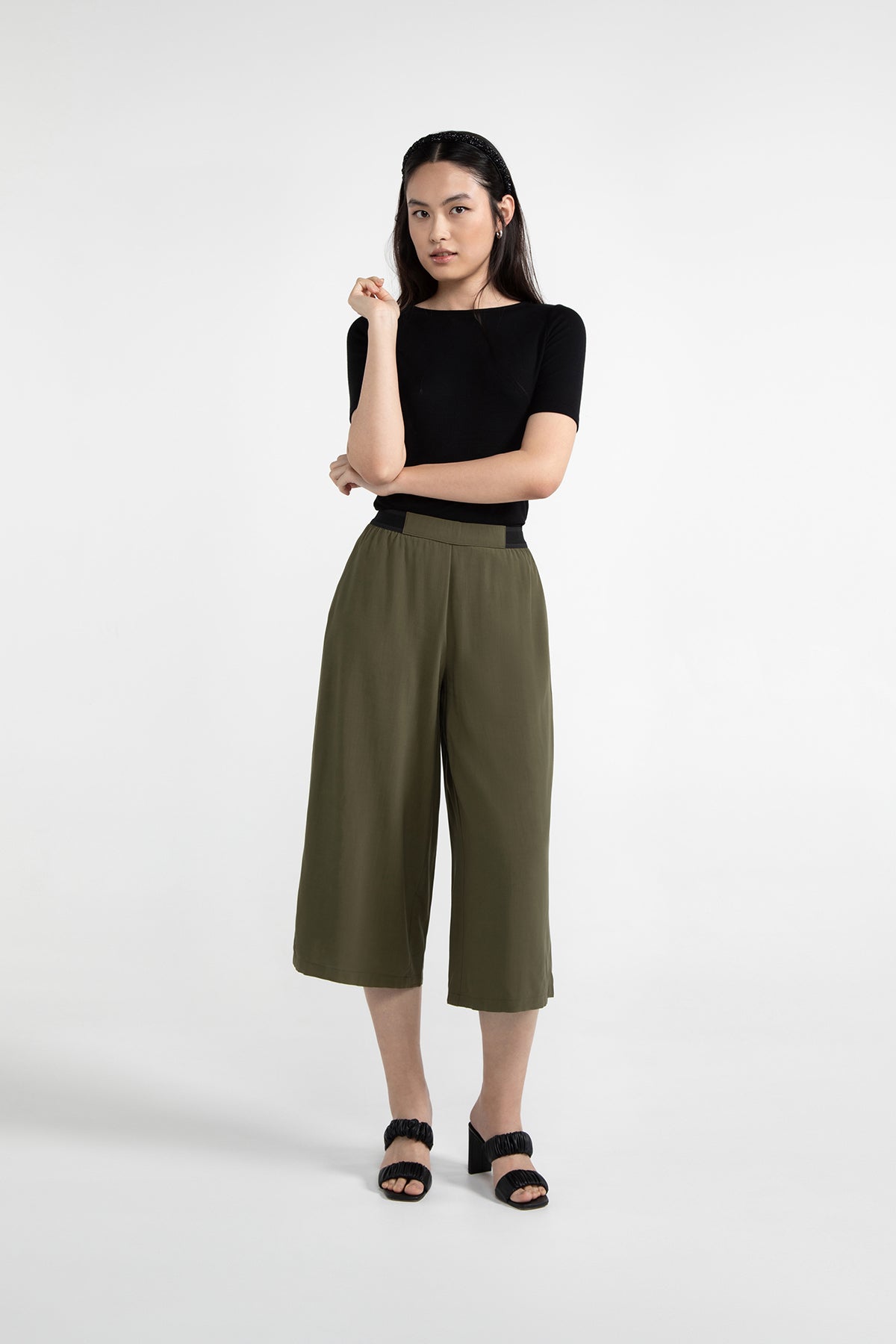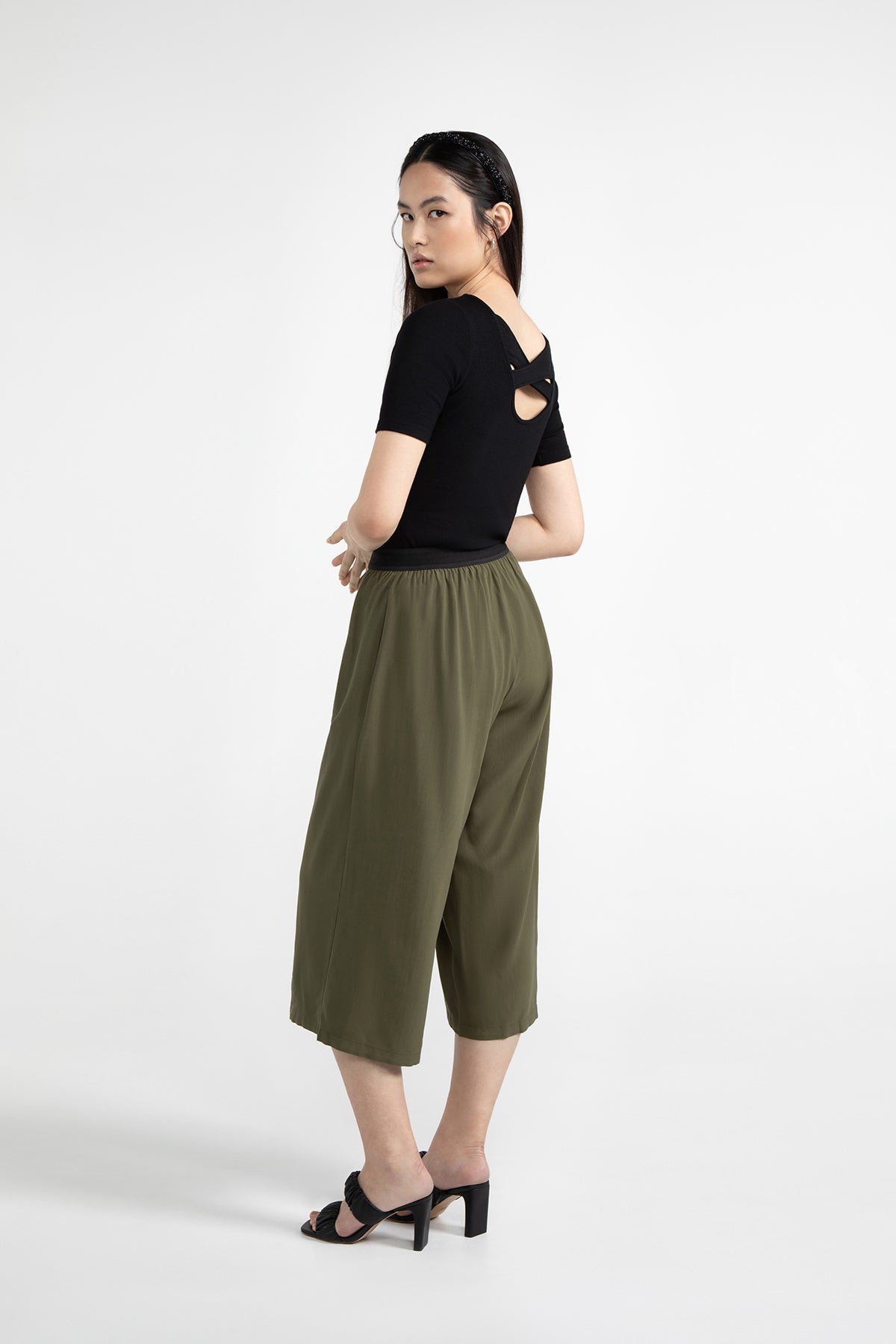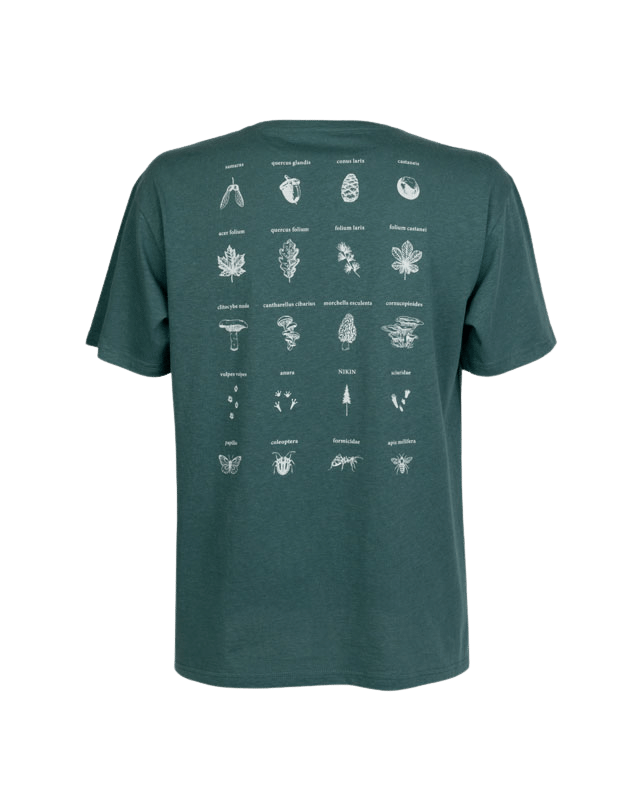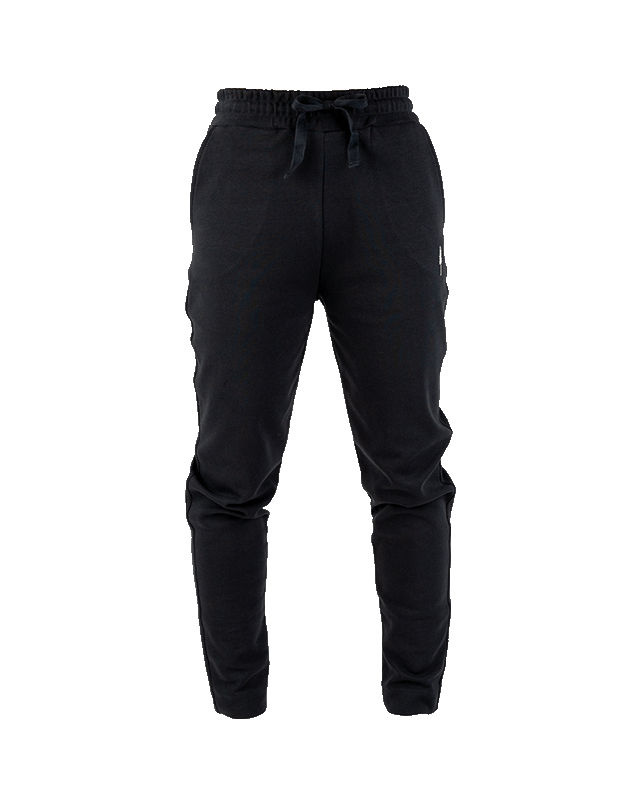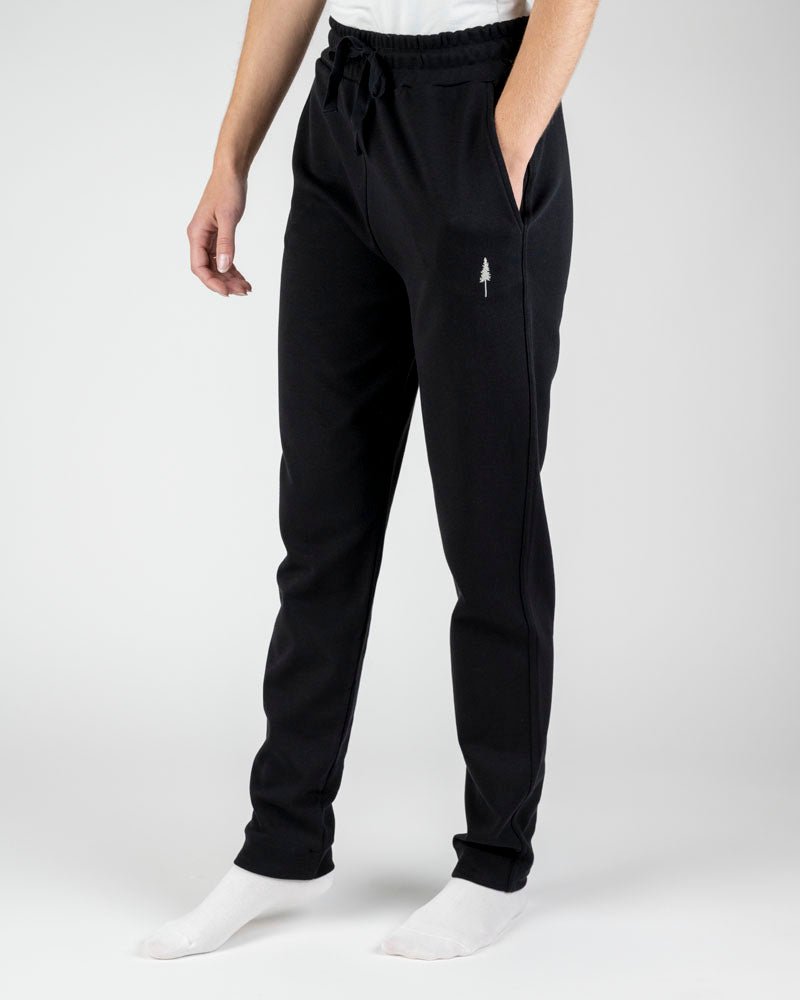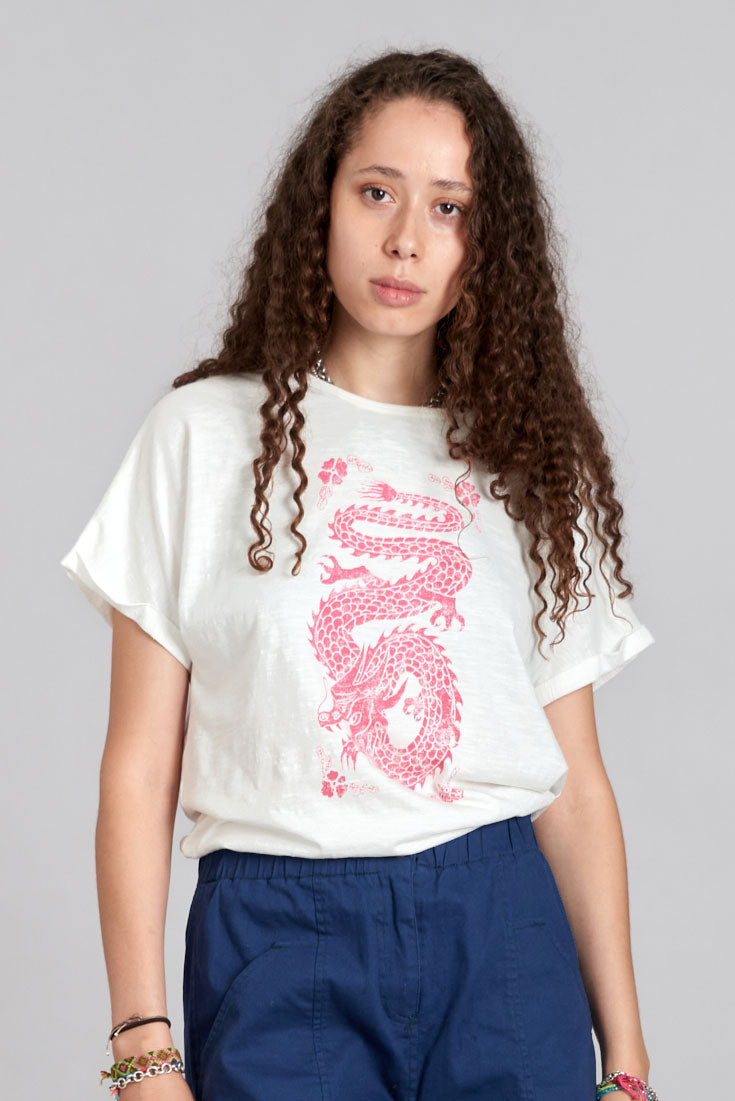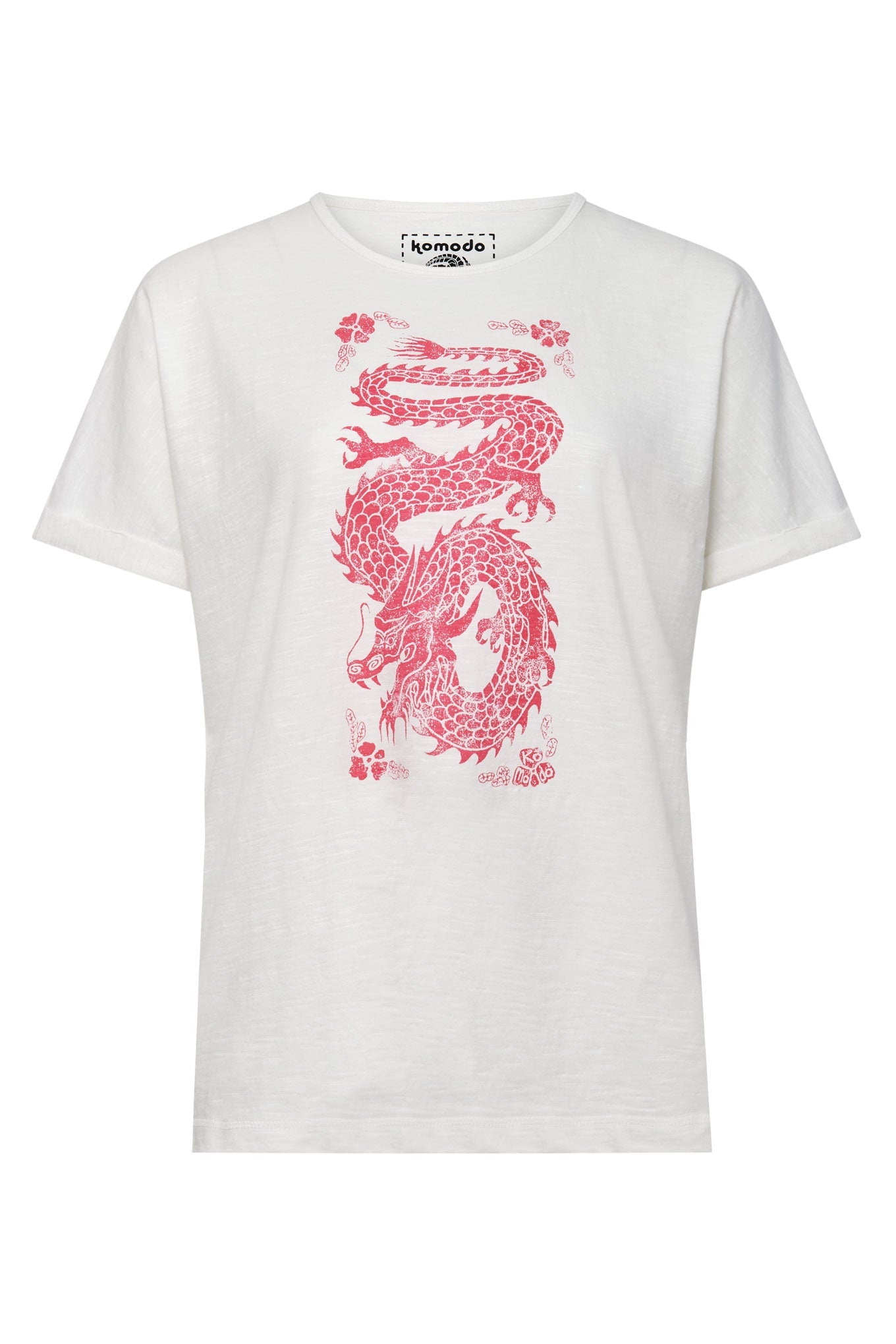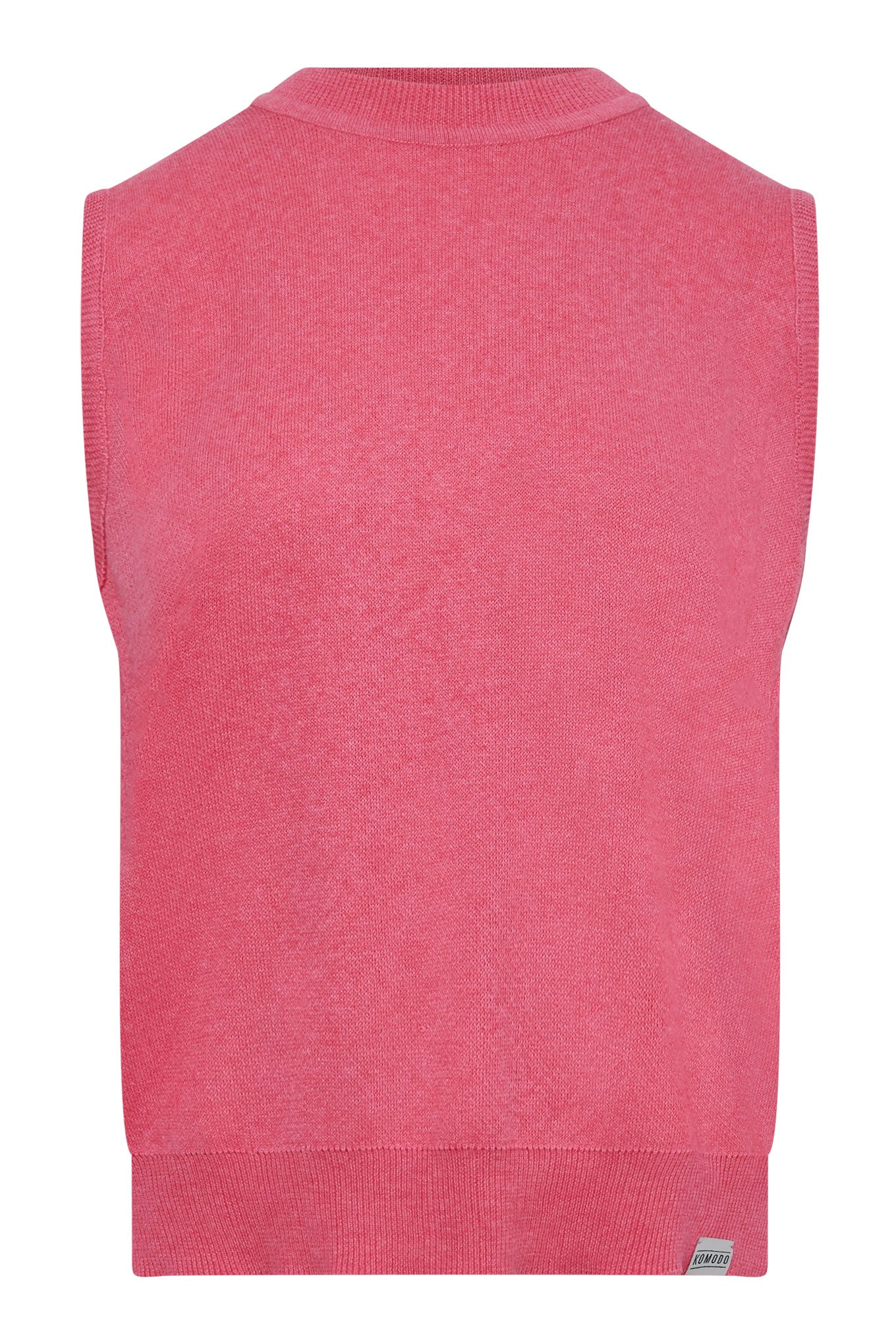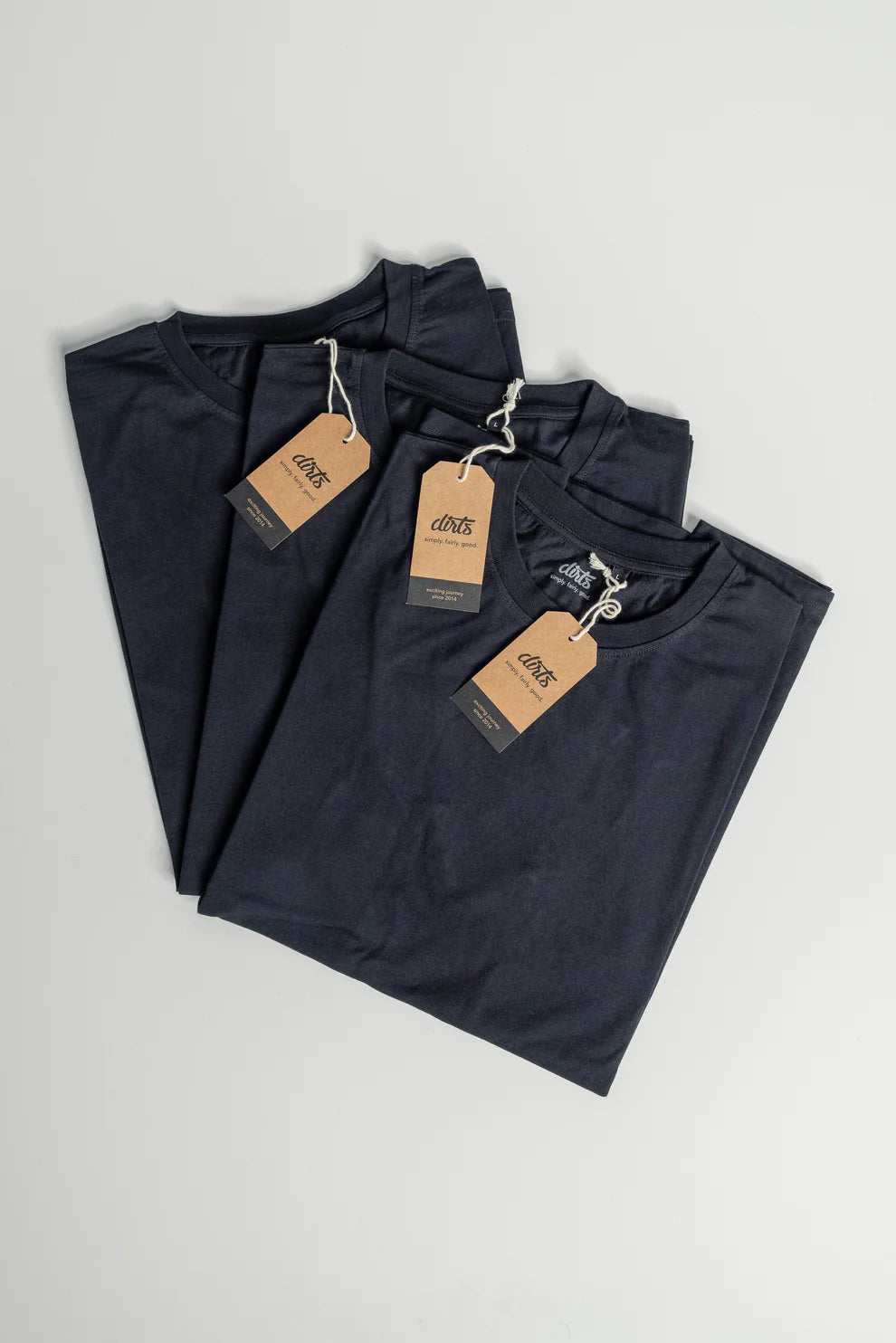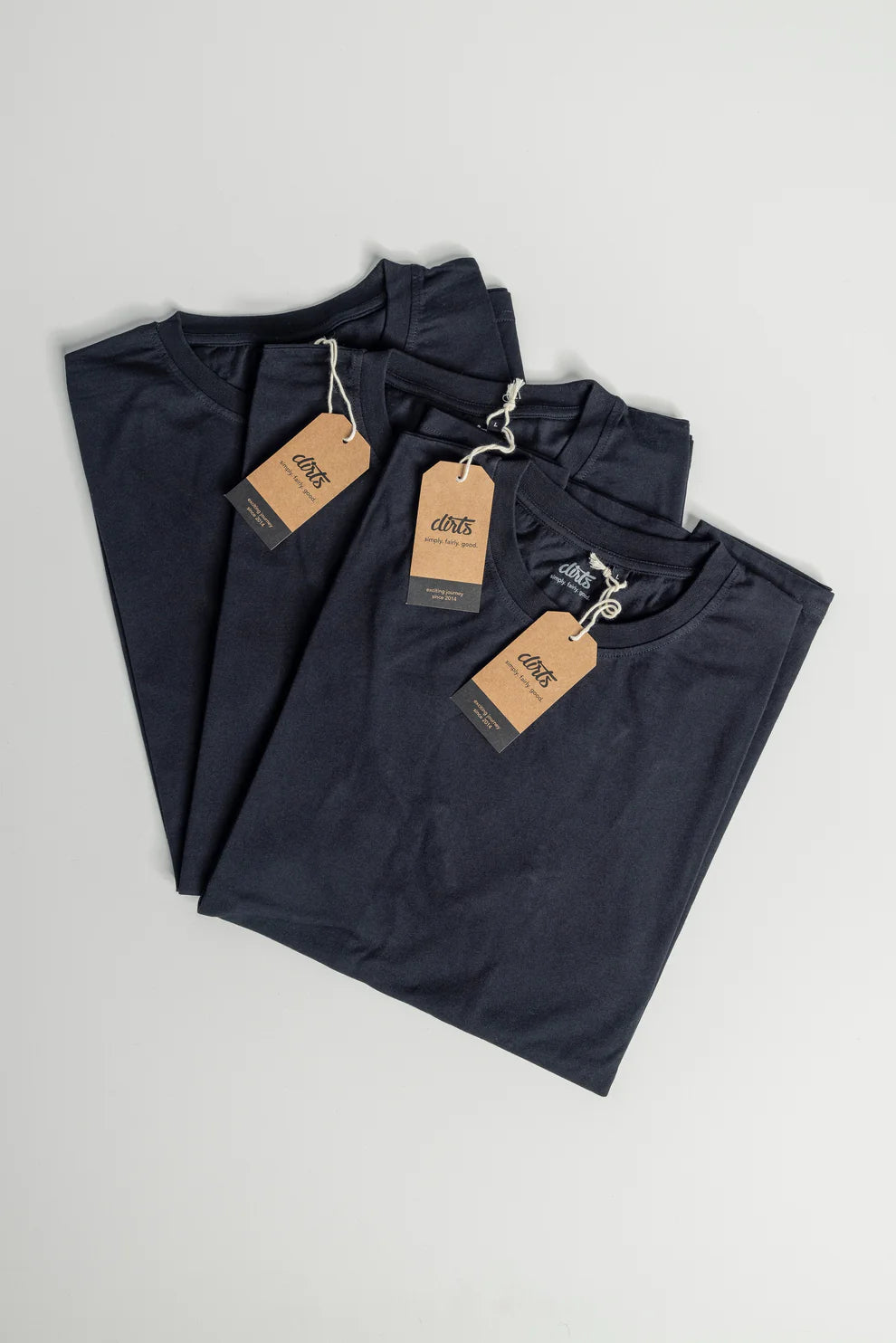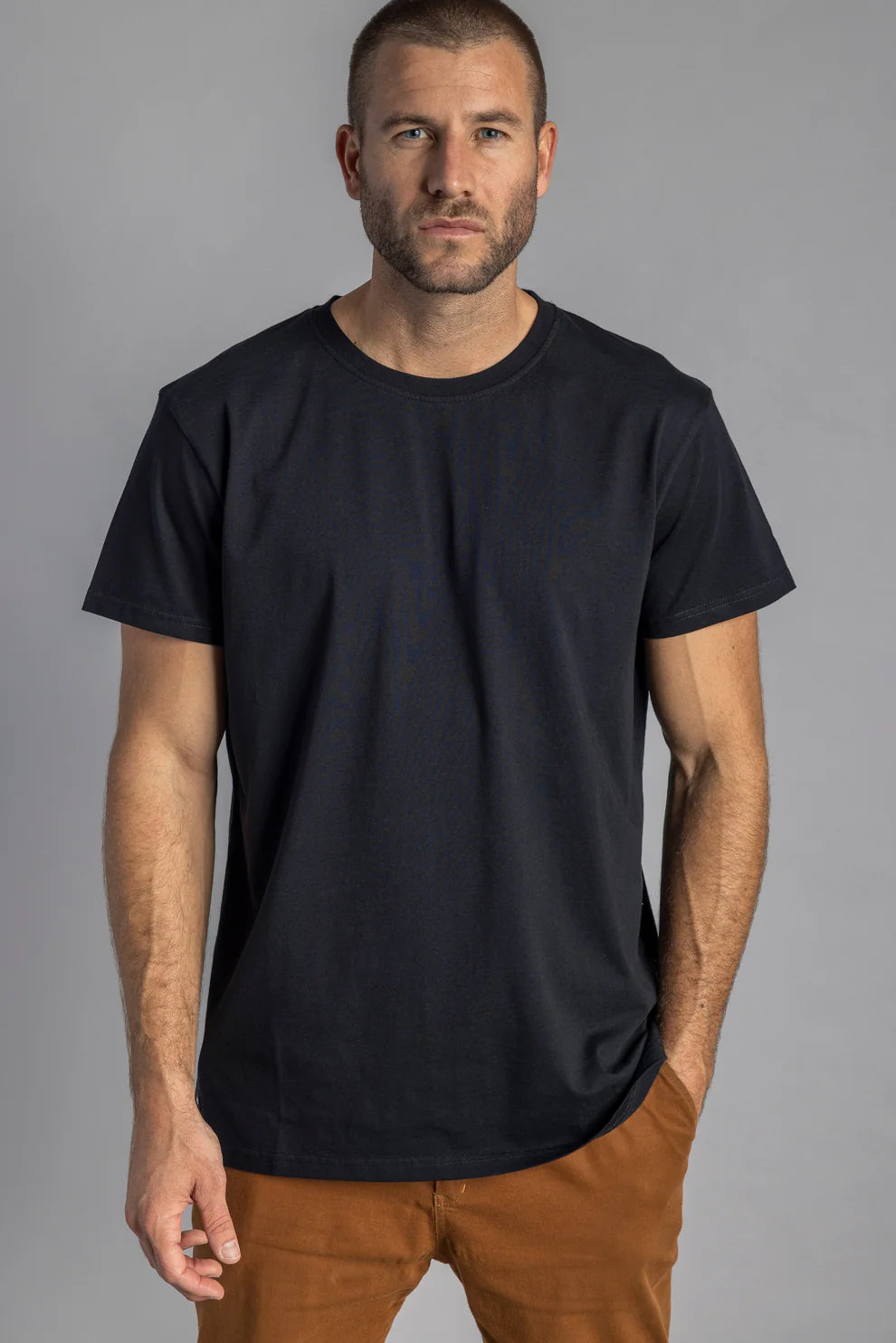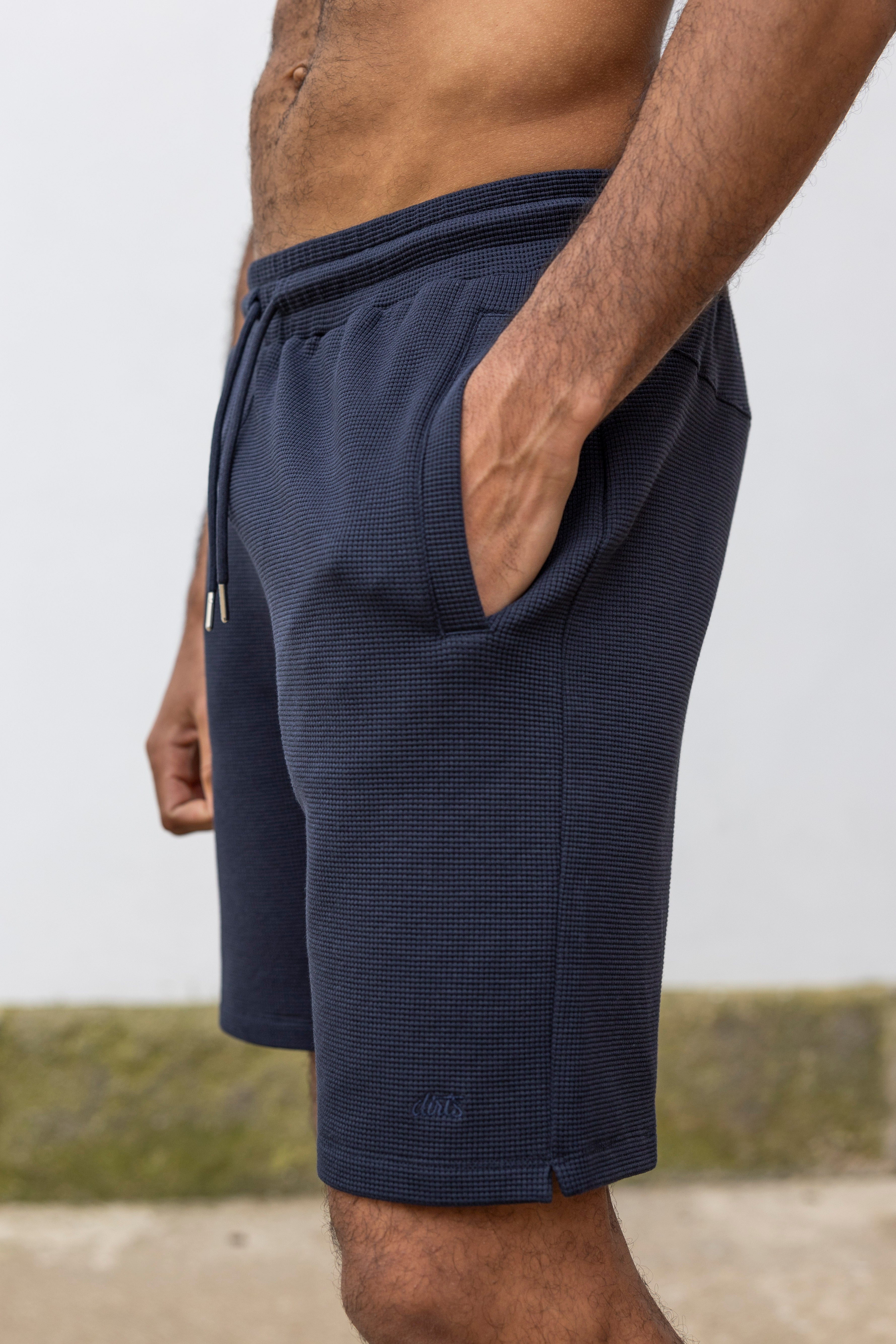Our Materials
What is meant by organic cotton?
What is the difference between a cotton and organic cotton T-shirt?
Cotton fabric is easy to wear, but not always environmentally friendly. Intensive cotton farming can have harmful effects on the environment and people - from water pollution to poisoning wildlife to poor treatment of workers. For example, around 16 percent of the pesticides used worldwide are used in cotton fields, even though they only make up 2.5 percent of the total agricultural area. It's not without reason that cotton has a problematic nickname: the "dirtiest plant in the world."
Organic cotton is an ecological raw material that is grown without these agricultural chemicals. In this case, the harmful substances of intensive cotton cultivation are replaced by natural substances such as green manure. In this way, cultivation is not as harmful to the environment and people. A high quality of organic cotton fashion can be achieved through predominantly more traditional cultivation and harvesting methods. Organic cotton clothing receives certifications from various organizations and institutes, at least as certified organic cotton (kbA).
The GOTS (Global Organic Textile Standard) is the highest standard for organic cotton fabric, which, in addition to ecological raw material criteria, also includes social and ecological aspects in the production process. Through such certifications, consumers can buy high-quality, fairly produced organic cotton.
Organic cotton for women
Advantages of organic cotton at a glance
Even if conventional cotton only reflects part of the environmental impact of the entire textile industry, switching to organic cotton fashion can massively reduce the burden on the environment and the climate. Even a product like an organic cotton T-shirt can make a significant contribution to this. We live in a world in which sustainability is no longer just a side issue, but has become the focus of interest. Wearing organic cotton clothing can be an effective improvement that we can achieve in everyday life.
1. Organic cotton fabrics keep the water clean
The intensive production methods of traditional cotton cultivation pollute our seas, rivers and water supplies. Organic farming is much gentler because dangerous synthetic pesticides and fertilizers are banned, so no harmful chemicals end up in the water. This in turn promotes organic farming and healthier soils.
2. No synthetic pesticides
Organic farmers use natural pest and disease control methods for organic cotton. By using these gentle methods, there are fewer harmful effects on the ecosystem and also on the people who handle the organic cotton fabric.
3. Fairtrade
The rights and well-being of workers are often not taken into account when growing cotton on large farms. At the proven organic cotton companies, the workers are well looked after and paid fairly. In addition, local communities benefit from the mixed crops that organic cotton companies usually grow, as well as from the more protected environment of the companies.
4. Organic cotton binds CO2
Organic farmers use natural methods and avoid fossil fuel-based fertilizers. On the other hand, the healthier soil cultivated in organic farming binds carbon more efficiently, so that more CO2 remains in the soil and not in the atmosphere. With your next pair of organic cotton underpants you will contribute to a lower CO2 footprint.
5. High quality
The fabric is in many ways one of the highest quality options when buying organic cotton. Since organic cotton fashion has not been processed with aggressive chemicals, it is more durable than conventional cotton clothing. In addition, due to the increased handwork, organic cotton fabrics usually have a softer surface, which allows for a pleasant feeling on the skin and can also be used in underwear, such as organic underpants. This means that organic cotton fashion gives you greater certainty that you are receiving a high-quality fabric.
Organic cotton for men
NUVONDA is a cooperative with the aim of making sustainable fashion labels accessible to as many people as possible. That's why at NUVONDA you will only find labels that aim to produce as sustainable, fair or regional products as possible. The web designer Gregor is the one who supports NUVONDA as a “member of the administration” in cooperative jargon, especially in IT-technical questions.

Gregor, co-founder, explains the differences between organic cotton and conventional cotton





